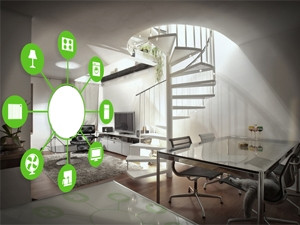
The Internet of things is slowly taking over people's lives, and an era in which all devices are connected and interoperable will be a reality in only a few years - but at the cost of privacy.
Connected toothbrushes, smart suitcases, intelligent tennis rackets, virtual reality glasses, and smart homes and cars were all showcased at this week's Mobile World Congress 2015 - a sign the world is becoming interconnected, say analysts.
Yet, this level of great convenience comes at a cost to privacy, and highlights the need for security to become an indispensable tool.
On the verge
Swift Consulting CEO and tech blogger, Liron Segev, notes a future in which everything is connected, and household items, devices and cars talk to each other is not far off. With this new era, which he calls the "age of the machine", comes vast amounts of data that are being logged.
Cars will talk to each other seamlessly, and transmit data humans are not even aware is being sent, such as about traffic conditions, says Segev. He adds homes and cars will also communicate, and a car will let the house know when to turn on the lights based on its proximity.
This new era, which is bigger than the industrial revolution, is only a few years away for South Africans, as more fibre-to-the-home will drop the cost of connectivity, currently a hurdle, and allow economies of scale to kick in so that devices become cheaper, says Segev. Internationally, this move is already under way as people can buy do-it-yourself kits from Walmart, he notes.
World Wide Worx MD Arthur Goldstuck notes the Internet of things age is already upon us through devices such as fit bands and car tracking devices that are integrated into traffic maps. He says, locally, these tools are being adopted in massive numbers because of the benefits they offer.
Step change
The next wave of the shift to the Internet of things is that all devices will become interconnected, says Goldstuck. He says a diverse world of sensors will all fit together, allowing data to be collected on a range of activities: driving habits, fitness levels, electricity consumption and teeth-brushing routines.
The Internet of things becomes very powerful when all this data is married to people, notes Goldstuck. He says this is a "big" privacy issue, but that people have already been conditioned to accept giving up aspects of their lives for convenience, such as when using search engines.
Segev explains everything changed when the world moved to IPV6 from IPV4, and everything now has a network address, which allows for much more data on an individual to be collected. He says, however, the question is what the providers will do with the data, noting it can be used for far more than just identifying trends in the way people brush their teeth. "There is way too much trust."
In addition, it is becoming increasingly hard to opt-out of a connected life because doing so cuts people off from information and access to the world, says Goldstuck. "We're making a deal with the ghost in the machine."
Another looming issue is that of security, says Segev. He notes it is already a battle to persuade people to keep PCs and smartphones updated with anti-virus software and patches, and this will become even more of a challenge when billions more devices hit the Internet. Cisco predicts there will be 50 billion connected devices by 2020.
Share